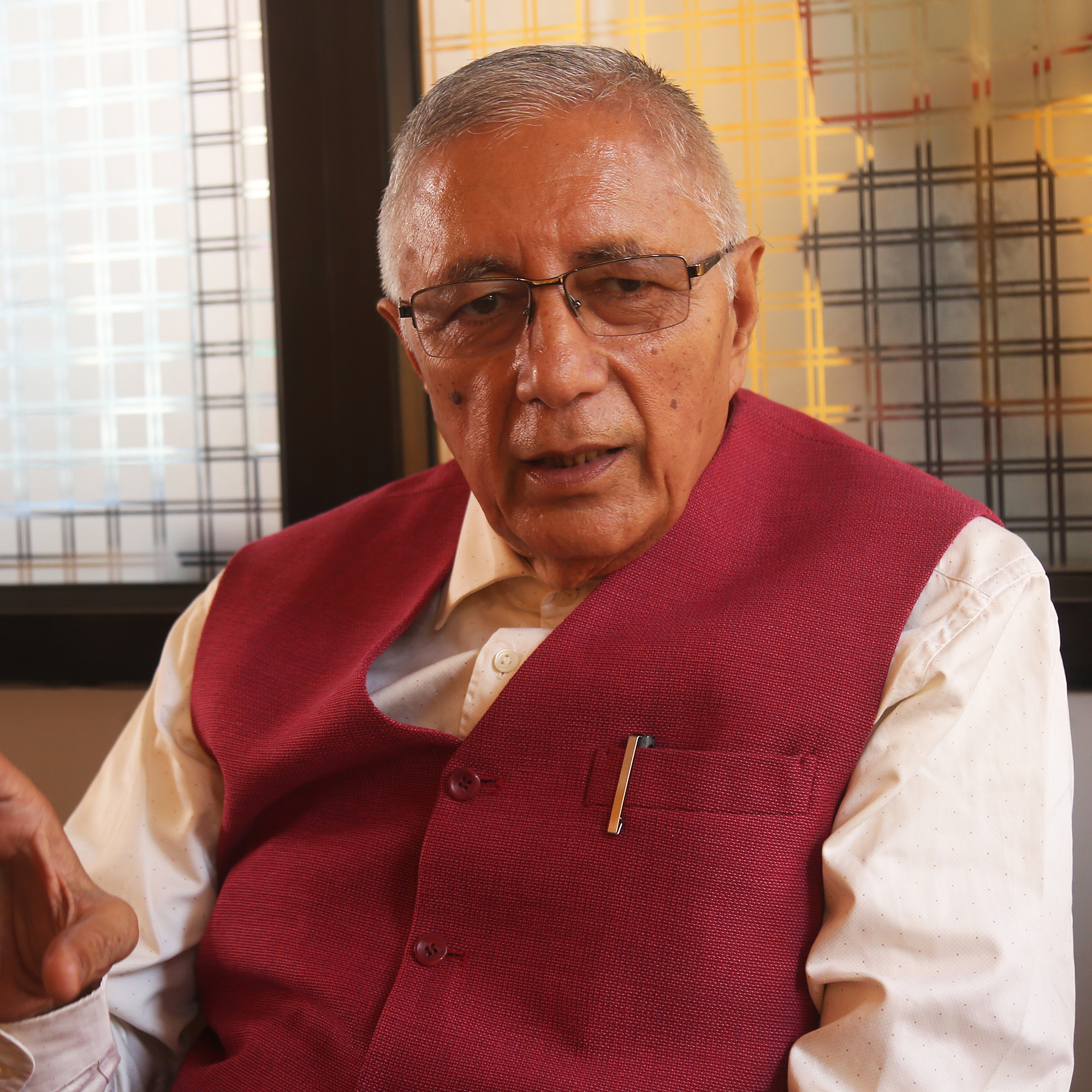Opinion
From the opposition benches
The Madhesis are also Nepalis; the lens being used to look at the Madhes from Kathmandu must be changed
Shekhar Koirala
Nepal is heading towards a deeper mess, and the government has well displayed its inaction. Meanwhile, the prime minister has been uttering proverbs and spreading illusions among the people by disseminating pipe dreams. The UML-led coalition government has facilitated black marketeering, price hikes, artificial shortages and bad governance besides institutionalising corruption. The government has also failed to take effective decisions about the issue of earthquake survivors particularly about their housing. Economically weak survivors are still living under temporary shelters.
Currently, the issue of nationalism is being raised strongly. One must understand that all the citizens whether from the mountains, hills or Tarai-Madhes are equal shareholders in the issue of nationalism. When psychological bonds among the Nepali people are strengthened, nationalism is also strengthened. Everybody from mountains, hills and Tarai-Madhes should get equal opportunities for basic things like education, health and employment. Only then will our nationalism become stronger.
Sovereignty should not be limited to geography. Issues such as climate change, terrorism, global marketing and human rights should be the basis for defining sovereignty. Now the UML-led government is talking about sovereignty in a loud voice. When the same UML-led government submitted the four-point ‘Non-Paper Document’ to the Indian government without consulting anybody, where was the sovereignty of the country then? Delivering speeches for the sake of earning cheap popularity cannot strengthen nationalism and sovereignty. Cancelling the President’s visit to India at the 11th hour is not only unfortunate for the country but it also shows the current government’s diplomatic failure. This has led to Nepal-India relations turning sour. Recently, the judiciary has been made a recruitment centre for UML cadres. Such interference in the judiciary, which is regarded as the last resort for democracy and has the ultimate belief of the people, has worried the Nepali Congress (NC) and other democrats.
Policies and programmes
The government’s recent policies and programmes contain flowery words but have failed to meet the aspirations of a majority of the Nepalis who are living below the poverty line. For instance, the government has announced that loans will be issued on the basis of academic certificates, but many of those who are economically disadvantaged do not have higher education degrees. How can they produce academic certificates to obtain such loans? The move to build large infrastructure projects with domestic funding is a positive aspect. But it is absolutely wrong to make the President speak on projects which are sub judice before the Supreme Court.
The budget that was recently presented in Parliament is very optimistic, highly ambitious and ‘distributory’. Nepal’s problem with previous budgets has been the inability to implement the programmes. This is because we do not have the required skills, management, political will and resources to do so. This budget also has continued to make a lot of promises without recognising past failures and introducing methods to rectify them. A lot of funds are being distributed through different programmes. This will increase liquidity in the market which in turn will increase demand for consumables, eventually pushing up prices. Moreover, such a situation will create the psychology of a consumption-based economy, not an investment-based one, which is not healthy in the long term.
A lot of funds are being distributed for political interest. If accountability factors are not introduced, most of these resources will be wasted in corruption. In recent years, international intervention has increased significantly in Nepal. Along with our neighbouring countries, the presence of Western countries has extended. Recently, US Secretary of State John Kerry said that it was natural for the US to show interest in Nepal’s contemporary affairs.
The Madhesis and Janajatis have been fighting for their identity, proportional representation and equal opportunities. The Madhesis are also Nepalis. The Madhesis possess sentiments of nationalism as much as citizens of the mountains and hills. Whatever be the number of provinces, they will be inside Nepal. This fact must be understood well by those who are ruling the state. The lens being used to look at the Madhes from Kathmandu must be changed. Naturalised citizens from the Madhesi community should also understand that they cannot hold constitutional or executive positions at any cost. The political dialogue committee formed by the erstwhile NC-UML coalition government had created the framework of seven provinces. The same framework can be adopted to sort out the current dispute over provinces. Likewise, representation in the Upper House can be ensured based on population and geography. These things have to be resolved soon so that the country can hold local elections in 2018 as scheduled.
Nepali Congress
Against this background, the NC, the largest party in Parliament, needs to unite psychologically and physically. History shows that whenever the NC becomes weak, nationalism becomes weak, and the country suffers from a crisis. The structures within the NC at all tiers need to stand together to lead the country on the path of peace, political stability and economic prosperity. Opposition parties do not always remain in the opposition. Their attempts to form, lead or join government is the basis of politics. The NC is not wrong in attempting to change the current government by supporting the leadership of Prachanda. In a parliamentary system, the largest and second largest political parties should not be in government together. The NC will not support the implementation of the government’s faulty programmes and policies, but it is committed to implementing the Constitution.
Only democracy can foster development. For this, holding elections to the local bodies is a must. As a democratic party, the NC is keen to go for local polls. But if holding local polls is used as means to stick to power, the NC will never accept that. There is no alternative to speaking out against black marketeering, artificial shortage, bad governance, price hike and corruption in Parliament and on the streets, media and social media. The NC needs to launch a campaign to educate people from far-flung areas about the constitution. It should also play an effective coordinating role in sorting out the issues of Madhesi and indigenous Janajatis, including the demarcation of federal provinces.
These aforesaid issues of discussion are evidence of the fact that the current government has failed on all counts. There exists perversion and misconduct in every decision and sector. It is absolutely irrational to blame the opposition and neighbouring countries for the ineffective performance of the government. The country is not going to be built by foreign powers. We have to build it ourselves. To build the nation in the true sense, a big heart is needed which the current government lacks.
Koirala is a member of the Nepali Congress Central Working Committee




 19.12°C Kathmandu
19.12°C Kathmandu










